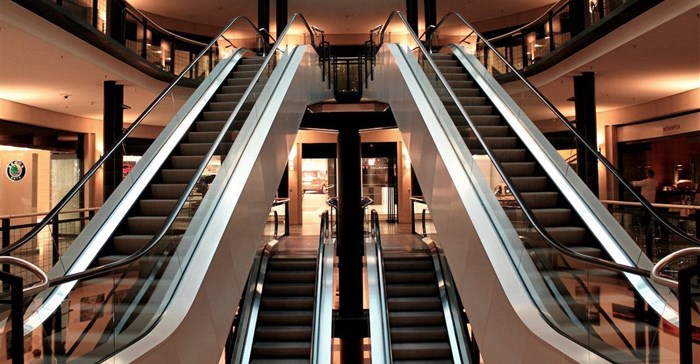
Top stories






More news


Marketing & Media
Ads are coming to AI. Does that really have to be such a bad thing?














The analysis was performed using Terain, the company's new AI-driven geospatial solution using near real-time app location data combined with Eighty20’s customer profiling information to understand anonymised customer movement behaviour.
Andrew Fulton, director at Eighty20, revealed insights into the change in foot traffic, from January 2020 to the most recent data, at seven super regional malls across Gauteng, Western Cape and KwaZulu-Natal. For this analysis, Eighty20 compared key mall performance metrics - namely overall number of visitors (footfall) and dwell time - at Sandton City, Mall of Africa, Fourways, Gateway, Menlyn, The Pavilion and Canal Walk.
As one would expect, foot traffic to these malls dropped dramatically during lockdown - by between 80% and 90% - with Sandton City being the hardest hit. With some of these malls seeing 1.5 million or more visitors a month pre-Covid, that’s a decrease of 1.2 million coming through the doors during hard lockdown.
“While all seven malls have now recovered and exceeded pre-Covid footfall numbers, it took until Q3 2021 for most malls to reach pre-lockdown visitor volumes. Fourways and Sandton mall have recovered best of the seven malls compared, but remember Fourways was still under renovation at the end of 2019, so its relative growth will look more impressive,” comments Fulton.
Dwell time dropped between 65% and 85% during lockdown, and still has not recovered to its pre-Covid levels. Canal Walk came closest to the pre-Covid benchmark at the beginning of the year, at 99% recovery, with Fourways lagging at 89% but since then it appears dwell time has fallen for all malls.
This supports other shopping centre research Eighty20 has conducted showing that shoppers have become far more focused and deliberate in their shopping missions, spending less time browsing. “People tend to go into the store, get what they need, and get out quickly to avoid lengthy contact with other shoppers,” Fulton points out.
“The closing of cinemas, the shift to more online shopping and the rise of grocery delivery services are other likely contributors to decreased dwell time,” he adds.
Looking at demographics, Eigthy20 data reveals the types of customers still going to the malls. Sandton City dominates the three wealthiest segments - Middle Class Workers, Heavy Hitters and Comfortable Retirees, with Fourways showing the largest number of LSM 10 shoppers.
Canal Walk is the chosen destination for the Mass Credit Market, and reflects the demographics of South Africa best, with more LSM 6 shoppers than LSM 10 shoppers. Gateway and Pavilion are also similar in this respect. In terms of income, nearly 37% of Sandton City shoppers earn more than R20,000 per month personal income. For Pavilion and Canal Walk, only a quarter of shoppers earn that much.
The Eighty20 Terain tool also provides insights into modes of transport used, showing large differences between malls. For Sandton Mall, roughly 45% of shoppers have a car as their main form of transportation, whereas, for Canal Walk it is closer to 35%, with 20% citing minibus taxis.
“While footfall has certainly recovered at the six malls we examined, dwell time still isn’t at its pre-Covid levels, and might never recover,” Fulton concludes. “Considering that so many studies have shown a strong positive correlation between dwell time and sales, retailers in malls may need to start putting more creativity into attracting potential customers.”